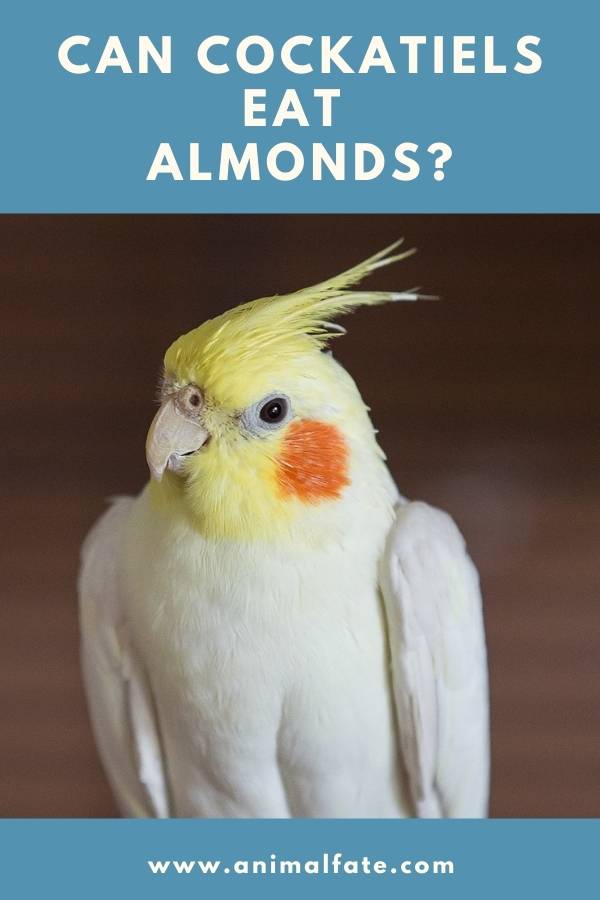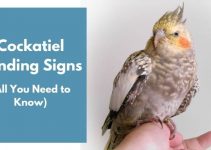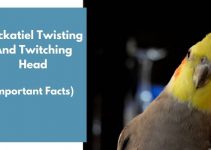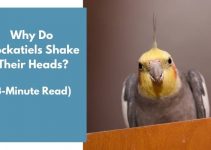Cockatiels can eat almonds, yes. Cockatiels would love a nutty snack, and almond is a healthy nut you can offer. When feeding almonds, you shouldn’t include the shell. Further, you should give it roasted, unsalted, and in small amounts only. As long as you do, your cockatiel can enjoy this nutty snack without risks.
Almonds, along with other nuts, offer a nutritious and tasty snack for birds. For this reason, your pet will surely love eating some if you feed it.
However, like all other kinds of nuts, feeding almonds have some risks you need to understand.
In this article, I researched and answered possible questions that you may ask.
Let’s get into it!
Contents
Are almonds good for cockatiels?
Nuts can be a delightful snack for birds. Aside from having a great taste, nuts are also highly nutritious. For this reason, nuts like almonds are suitable for cockatiels.
According to HealthLine, an ounce (28 grams) of almonds can offer:
- 3.5 grams of Fiber
- 6 grams of Protein
- 14 grams of Fat
- 161 Calories
- 2.5 grams of Carbohydrates
At the same time, almonds are also rich in the following vitamins and minerals:
- Vitamin E (which improves your bird’s response to stress)
- Manganese (which helps in a bird’s growth, reproduction, metabolism, and clotting)
- Magnesium (helps in muscles and nerves, regulates blood pressure, and supports the immune system)
- Vitamin B2 (which helps convert food into energy)
- Phosphorus (which helps in forming and maintaining bones)
Now, although almonds are highly nutritious, it doesn’t mean you can feed your pet with it as much as you want.
Almonds also have some risks for birds, and we’ll talk about it as we go further into this article.
In general, almonds are safe for your cockatiel as long as you feed it in moderation.
Let’s understand how much almonds you can feed your cockatiel.
You May Also Read – Can cockatiels eat raisins?
How many almonds can cockatiels eat?
As I said earlier, you shouldn’t feed too many almonds to your cockatiel. Almonds shouldn’t exceed 3-4 grams per day.
Almonds, along with other nuts and treats, should only form 10% of their diet. Food treats also include seeds and fruits.
Like all other birds and animals, they should have a balanced diet consisting of a few other foods.
A significant percentage of their meal should be pellets, making up a total of 60% of their daily diet. The remaining 30% should be for vegetables.
In general, a cockatiel should only eat a total of 30-40 grams of food per day. For this reason, you shouldn’t offer more than 3-4 grams of almonds per day.
The key to a good diet is always balance. For this reason, you should limit feeding almonds to once or twice a week.
Further, it would be best if you didn’t feed almonds as the only treat or snack. Consider getting a variety of options like walnuts, peanuts, and others.
Risks of feeding your cockatiel almonds

Even though almonds are highly nutritious snacks for your pet, it still has some risks with it.
For this reason, you should be aware of such risks to avoid unwanted incidents from happening.
Almonds contain copper
The first thing you should note is that almonds are rich in copper. Such a component is potentially harmful to birds.
For this reason, you may want to limit almond feeding for your pet to avoid taking in too much copper.
Sticking with 1.5 grams per day is safe. However, it would be best to limit almond snacks to once or twice a week.
Avoid giving almonds with shells.
Almonds are rich in anti-nutrients such as phytic acid. This component is a substance that binds certain minerals and prevents absorption.
Although it acts as an antioxidant, it also reduces the amount of iron, zinc, and calcium your pet can get.
If you are giving almonds, it would be best to dry roast it and remove the shells first.
Roasting the almonds and removing the shells lessen such acids from working.
Avoid giving salted almonds.
Like other human-grade nuts, almonds have added salt and seasonings to improve the taste. While salt is tolerable for us, it’s not the same for our pets.
The added salt could cause an imbalance in your bird’s electrolytes and fluids. It can also lead to dehydration, kidney failure, or worse, death.
For this reason, it would be best to avoid salted almonds and go for the unsalted ones instead.
Prevent molds from growing on almonds.
Keep the almonds in a dry and cool area to prevent it from getting molds.
As a general rule of thumb, don’t feed almonds or other nuts that you won’t eat yourself.
Further, keeping your almonds in a moist area can cause fungus to grow, which is also toxic for these birds.
Thus, always make sure this food is safe and secure and avoid giving it with shells intact.
Avoid feeding almonds in large sizes.
Always make sure you give almonds in small amounts. Of course, it may be tiny for us, but it can still be big enough for our birds.
It would be best to crush the almonds before feeding so they can swallow it easily.
It’s ideal to do so, mostly if your pet has just finished weaning.
Almonds can be quite large, so it’s best to crush it into smaller pieces first.
You May Also Read – Can cockatiels eat rice?
What foods are dangerous for cockatiels?
Although almonds and other nuts and food are safe for cockatiels, it doesn’t mean you can feed every food you see.
Like any other animal, cockatiels have foods they shouldn’t eat, which can be toxic to them.
Below is the list of the toxic food you shouldn’t feed:
- Avocado
- Chocolate
- Onions
- Garlic
- Alcohol
- Mushrooms
- Honey
- Salt
- Caffeine
- Dried or Uncooked Beans
- Rhubarb
- High-Fat
- High-Sodium
- High-Sugar Foods
It’s important to note such food to avoid unwanted incidents from happening.
As long as you follow the things written about nuts, you can feed any nut you have in hand.
What other nuts can cockatiels eat?
Aside from almonds, cockatiels can eat other kinds of nuts as well. Just remember to give a human-grade and unsalted one.
If you have some, you can give the following in the same manner as almonds:
- Beechnuts
- Brazil Nuts (no shells)
- Cashews(roasted)
- Coconuts
- Gumnuts
- Hazelnuts
- Macadamia nuts
- Palm-nuts
- Peanuts (roasted/no shells)
- Pecan nuts
- Pili nuts
- Pine nuts
- Pistachios
- Walnuts (roasted and without shells)
As I said earlier, nut snacks are nutritious and will remain as such if appropriately fed.
You can even give your cockatiel some peanut butter, but there are risks you should know.
Do you wonder if chia seeds and pineapples are safe for cockatiels? Check it out!
Summary
Cockatiels can eat almonds, and you can feed it some as long as you understand the risk. Almonds, like all other nuts, are highly nutritious, and your pet can benefit from it if appropriately fed.
The primary thing you should remember is to feed almonds without the shell. Further, it would be best to have it dry-roasted and provide no more than 3-4 grams a day.
Proper feeding of almonds and serving pellets and vegetables will result in excellent and balanced meals for your pet.
Resources
HealthLine’s nutrition facts on almonds
Image Credits:
- Photo by J. on Unsplash
- https://www.needpix.com/photo/671608/cockatiel-parakeet-bird



